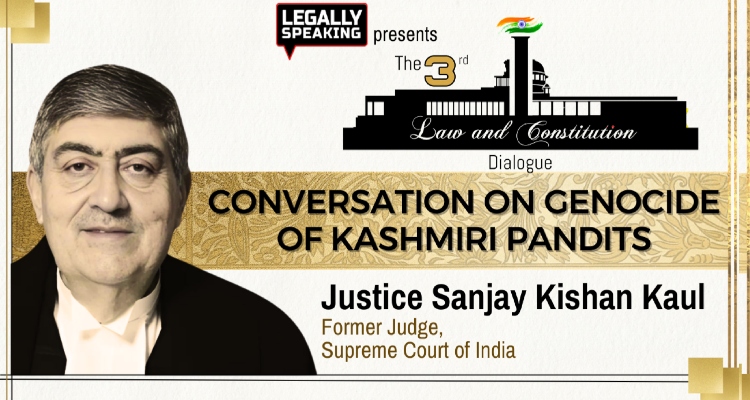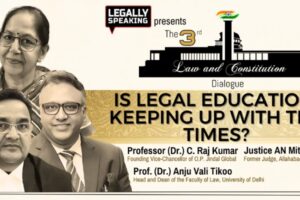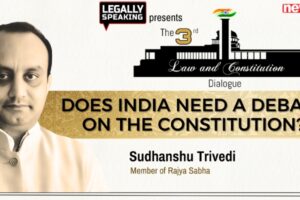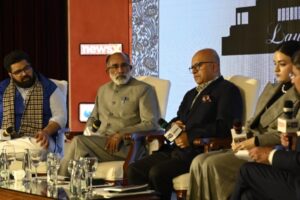
At the 3rd Law & Constitution Dialogue hosted by NewsX, Justice Sanjay Kaul addressed the enduring tragedy of the Kashmiri Pandit genocide, advocating for recognition, justice, and reconciliation. Reflecting on the events of over three decades ago, Justice Kaul emphasized the need to move beyond political debates and focus on a healing process to ensure the tragedy is neither forgotten nor repeated.
Acknowledging the Genocide
Justice Kaul underscored the importance of officially recognizing the genocide of Kashmiri Pandits, framing it as a necessary step toward addressing the pain and loss endured by the community:
“The focus should go beyond just the politics of the situation and shift towards a healing process, moving forward with it. Is there a need to recognize the genocide that occurred, the killing of Kashmiri Pandits 30 years ago? Yes, the community expects acknowledgment.”
He argued that this acknowledgment is not about revisiting the past but about affirming the injustices suffered, allowing the community to heal and rebuild.
Engaging with the Displaced Community
Justice Kaul shared personal reflections on his evolving understanding of the plight of the displaced Kashmiri Pandit community. While his tenure in office limited direct engagement, his post-retirement interactions revealed the depth of their pain and aspirations:
“When I was in office, I was more secluded and could not engage as much, but after my retirement, many came to me. From my interactions, it became clear that the community does not expect to return to the past but at least wants recognition that something wrong was done to them.”
These interactions highlighted the community’s desire for acknowledgment and spaces to reconnect with their heritage.
Expectations of the Displaced Community
Justice Kaul emphasized that the Kashmiri Pandit community seeks more than symbolic gestures—they desire tangible measures to restore their dignity and sense of belonging. Small yet meaningful initiatives, such as cultural and memorial spaces, could serve as starting points for reconciliation:
“The expectation of the displaced community is not to return to the past, but at least to have recognition of what was done to them and the creation of small spaces where they can go.”
He stressed that both political will and public support are essential to foster progress and initiate open, constructive conversations.
“There has to be both political will and the will of the people to move forward. If we are to make progress, conversations need to be initiated.”
A Call for Healing and Progress
Justice Kaul’s address served as a poignant reminder of the enduring impact of the Kashmiri Pandit genocide. By urging acknowledgment and reconciliation, he called on society to address historical injustices while creating pathways for healing. Moving beyond politics, Justice Kaul advocated for a united effort to ensure the tragedy remains a lesson for the future and not merely a chapter in history.




